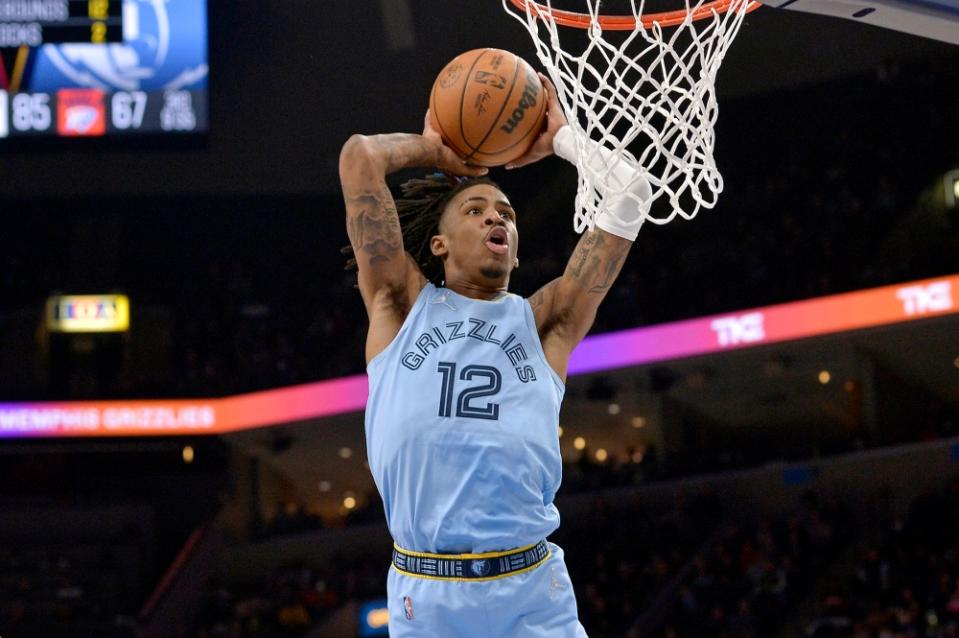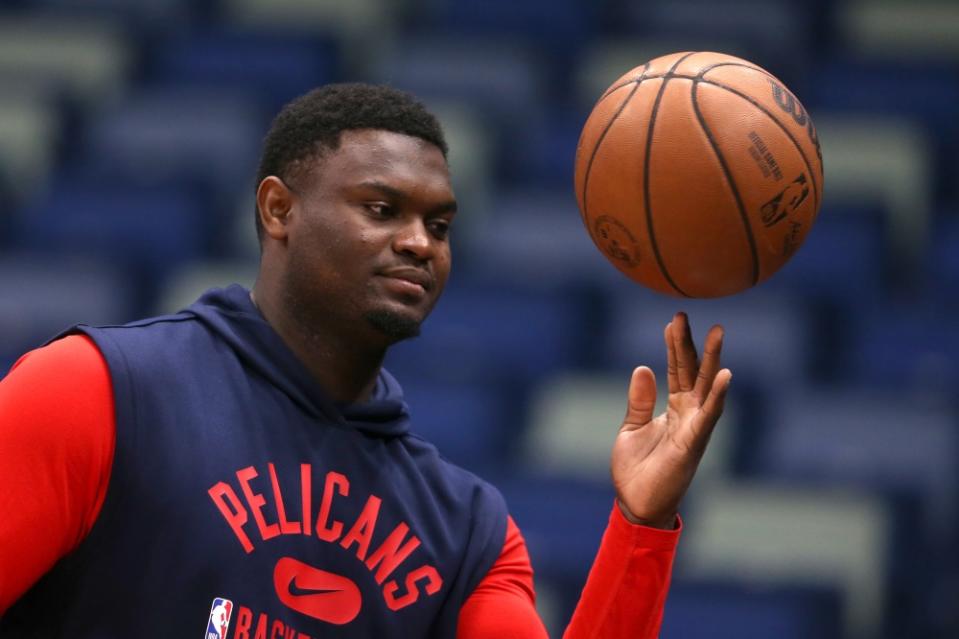HoopsHype explains: What is the Designated Rookie Rule?

HoopsHype is introducing a new series that aims to educate its audience on the rules of the Collective Bargaining Agreement. Here is an FAQ on the designated rookie rule, which has become a topic of conversation in this year’s free agency.
What does being a designated rookie mean?

(AP Photo/Brandon Dill)
The rule allows teams to extend players with one year left on their rookie-scale contracts for five additional years. The starting salary has to be at least the 25 percent maximum salary for players with 0-6 years of service.
The rule is really as simple as that, but there are several restrictions for teams that come with having designated rookies, such as the amount they can have and trading for them. We will get to that later, but it’s a good thing to keep in mind who is a designated rookie when coming up with hypothetical trades.
The designation only applies to players on rookie-scale contracts that add five additional years through an extension. This doesn’t apply to players who enter restricted free agency and then re-sign for five-year maximum deals, such as Nikola Jokic and Brandon Ingram in recent years.
Who are designated rookies?

Dale Zanine-USA TODAY Sports
As of now there are 14 designated rookies, including Trae Young, Jayson Tatum, Ben Simmons, Luka Doncic, Jamal Murray, Michael Porter Jr., Andrew Wiggins, Bam Adebayo, Karl–Anthony Towns, Shai Gilgeous–Alexander, Joel Embiid, Devin Booker, De’Aaron Fox, and Donovan Mitchell.
Darius Garland, Ja Morant, and Zion Williamson agreed to five-year maximum extensions with their respective teams. so they will have the designation starting next year when they kick in. From the list above, Wiggins and Embiid will lose the designation after the upcoming 2022-23 season.
Why was the designated rookie rule created?

Chuck Cook-USA TODAY Sports
NBA contracts are generally limited to five years for players with Bird rights re-signing with their previous teams. In extensions, players with Bird rights are also limited to five-year contracts, but that includes the current year in which the extension is signed.
For example, if a player has one year left on his deal, he can only extend for an additional four years. That is because the current year and the four additional years turn his contract into a five-year deal. The same would apply to players with two years left on their contract extending for a maximum of three years.
The designated rookie rule was created to allow players with one year left on their rookie-scale contracts to extend for an additional five years, turning their contract into a six-year deal. This is so players are incentivized to extend with their teams instead of entering free agency just for the sake of being able to sign a five-year contract.
How many designated rookies can a team have?

(AP Photo/John Minchillo)
Teams are only allowed to have two designated rookies at a time. For example, the Denver Nuggets signed both Murray and Porter Jr. to five-year maximum extensions, so they couldn’t extend another player to such a contract while keeping both Murray and Porter Jr.
Teams are also only allowed to trade for one designated rookie. This aspect of the rule is why the Kevin Durant trade rumors have brought so much attention to it recently. Because the Nets already traded for a designated rookie in Ben Simmons, they couldn’t trade Durant for players like Murray or Porter Jr. while rostering them with Simmons. Conversely, the Nuggets could trade one of their designated rookies and acquire another one like Simmons.
Doesn't this rule allow players to get a higher maximum salary?

Bill Streicher-USA TODAY Sports
That is the 5th year, 30 percent max criteria, better known as the Derrick Rose rule. This provision is often negotiated into designated rookie extensions, allowing players to earn a starting salary of up to the 30 percent maximum reserved for players with 7-9 years of service. Young met the criteria by making All-NBA honors this season and Doncic had already qualified for it when he signed his extension by earning All-NBA honors in his second and third seasons.
While designated rookie extensions must start for at least the 25 percent maximum salary, extensions with the Derrick Rose rule do not have to add an additional five years. For example, Pascal Siakam had the provision negotiated into his extension in 2019 that added four additional years. He met the criteria by earning 2nd Team All-NBA in 2019-20, and earned a starting salary worth 28 percent of the 2020-21 salary cap. Because he doesn’t have the designation, the Nets could acquire him for Durant without needing to reroute Simmons.
Has this rule worked as the NBA intended?

Rick Scuteri-USA TODAY Sports
If the NBA’s goal with this rule was to have more All-Star caliber players avoid restricted free agency and extend with their current teams, they probably accomplished it. It seems that the designated rookie extension has been unanimously accepted by players when offered by teams since the rule was implemented in 2011. There are a few cases in which certain players were denied it such as Deandre Ayton recently, and Kawhi Leonard when the Spurs were preserving cap space for 2015.
1
1

